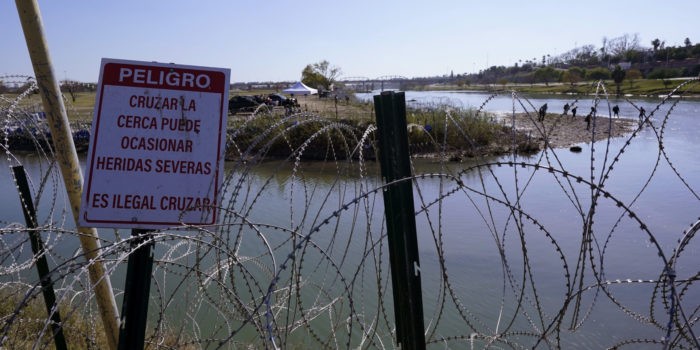(Bethany Blankley, The Center Square) The U.S. House Committee on Homeland Security Chairman Mark Green, R-TN, is demanding answers from Department of Homeland Security Secretary Alejandro Mayorkas about a claim that nearly one-third of surveillance cameras Border Patrol agents use at the southwest border aren’t working.
NBC News reported that roughly 150 out of 500 cameras positioned on surveillance towers along the southwest border aren’t working, citing an internal memo it obtained. The cameras don’t work due to “several technical problems” and “the nationwide issue is having significant impacts on [Border Patrol] operations,” the memo reportedly states.
The cameras are part of Border Patrol’s Remote Video Surveillance Systems, which has been operational since 2011. There are over 150 outstanding camera repair requests, according to the report.
The RVSS’s stated purpose is “to provide remote video surveillance systems, consisting of day and night cameras with remote pointing control from a Border Patrol station. These systems enable the Border Patrol to survey large areas without having to commit hundreds of agents in vehicles to perform the same function, thus improving the safety of agents as they detect, identify, and classify incursions at the border and resolve the incursions with the appropriate level of response,” according to a 2012 DHS assessment.
U.S. Customs and Border Protection has installed roughly 300 new towers using more advanced technology, CBP says. Over the last few years, billions of dollars have been poured into several surveillance systems.
In 2020, CBP announced it launched a new renewable energy-fueled Autonomous Surveillance Towers system that became “a Program of Record” for U.S. Border Patrol.
In December 2022, CBP announced its plan to acquire 296 new surveillance towers to use along the northern and southwest borders, upgrading an estimated 191 towers with new surveillance equipment.
In September 2023, $1.8 billion was awarded to General Dynamics Information Technology, one of three companies working with CBP to modernize and expand CBP surveillance tower systems. GDIT says it’s “been the prime contractor on the CBP Remote Video Surveillance System Upgrade (RVSS-U) program” and designed and deployed more than 170 fixed and relocatable towers sites.
The House Homeland Security Committee claims its staff spoke to DHS sources “who flagged multiple pressing concerns regarding” the RVSS, noting that Border Patrol agents rely on more than 200 RVSS towers to conduct surveillance.
The committee also points to an interagency memorandum of understanding between CBP and the Federal Aviation Administration, claiming the FAA is responsible for maintaining the RVSS cameras. Citing a single source, the committee claims in a statement that a CBP review of RVSS operational capabilities found that dozens of contractors working on the cameras weren’t cleared to work on them. Additionally, the source claims, “CBP was unable to verify that several workers, in particular, were even U.S. citizens.”
In response, Green requested DHS to provide information and records related to the RVSS.
“Disturbingly, multiple sources revealed to the Committee last week that more than 66 percent of the cameras in the remote video surveillance systems upgrade program are inoperable,” Green wrote in a letter to Mayorkas. “According to these sources, some of the busiest Southwest border sectors have nearly 50 or more cameras offline with multiple towers that have been out of service for more than a year. Committee sources also divulged that the Federal Aviation Administration, the vendor responsible for the repair of these cameras, contracts to companies employing non-U.S. citizens who may be physically manipulating the equipment on the camera towers.”
“Employment of such individuals appears to violate the CBP’s Information Systems Security Policies and Procedures Handbook, which states that ‘CBP policy requires that only Government and contractor personnel who are U.S. citizens shall be granted access to CBP systems processing sensitive information,’” Green said.
Green gave Mayorkas a deadline of Oct. 23 to provide the requested documents.

